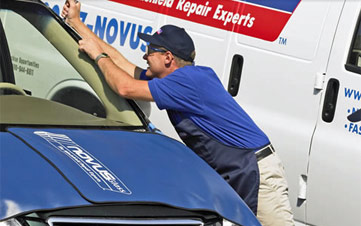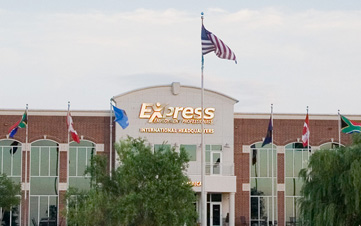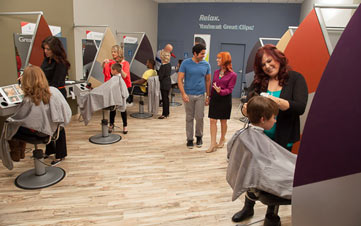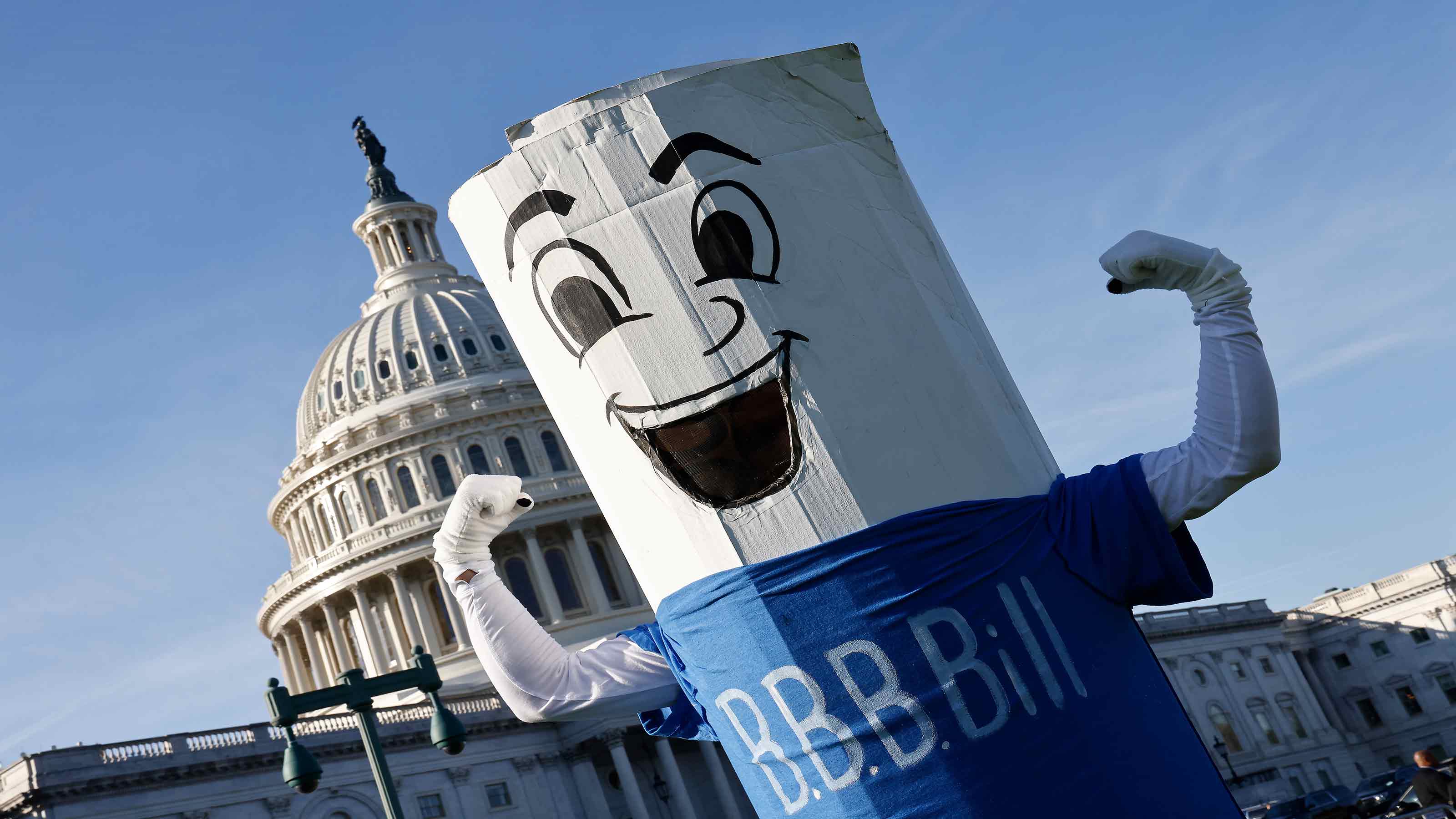6 Low-Cost Franchises with Great Growth Potential
Thinking of starting your own business?


Profit and prosper with the best of Kiplinger's advice on investing, taxes, retirement, personal finance and much more. Delivered daily. Enter your email in the box and click Sign Me Up.
You are now subscribed
Your newsletter sign-up was successful
Want to add more newsletters?

Delivered daily
Kiplinger Today
Profit and prosper with the best of Kiplinger's advice on investing, taxes, retirement, personal finance and much more delivered daily. Smart money moves start here.

Sent five days a week
Kiplinger A Step Ahead
Get practical help to make better financial decisions in your everyday life, from spending to savings on top deals.

Delivered daily
Kiplinger Closing Bell
Get today's biggest financial and investing headlines delivered to your inbox every day the U.S. stock market is open.

Sent twice a week
Kiplinger Adviser Intel
Financial pros across the country share best practices and fresh tactics to preserve and grow your wealth.

Delivered weekly
Kiplinger Tax Tips
Trim your federal and state tax bills with practical tax-planning and tax-cutting strategies.

Sent twice a week
Kiplinger Retirement Tips
Your twice-a-week guide to planning and enjoying a financially secure and richly rewarding retirement

Sent bimonthly.
Kiplinger Adviser Angle
Insights for advisers, wealth managers and other financial professionals.

Sent twice a week
Kiplinger Investing Weekly
Your twice-a-week roundup of promising stocks, funds, companies and industries you should consider, ones you should avoid, and why.

Sent weekly for six weeks
Kiplinger Invest for Retirement
Your step-by-step six-part series on how to invest for retirement, from devising a successful strategy to exactly which investments to choose.
Thinking of starting your own business? Opening a franchise of an established and successful service business can be a good way to navigate the many challenges of entrepreneurship. Franchisors typically help new franchisees learn their business, set up their stores, acquire supplies and more. Here are six low-cost service franchises that franchise experts contacted by Kiplinger think will see growing demand in the years ahead.
Each has a franchise fee around or under the industry average ($30,000 or so, according to the International Franchise Association). Net worth requirements run from as low as $35,000 to upwards of $300,000 (the average investment in a new franchise is between $50,000 and $100,000). The five-year growth rates cited are based on the number of franchises each franchisor had in operation at the end of 2013, compared with five years earlier.

Novus Glass
- Service: Windshield replacementTotal U.S. franchises: 316 (as of 2013)Five-year growth (2008-2013): 31%Franchise fee: $34,070Net worth requirement: $50,000
- Franchisees have the option of running the business from a bricks-and-mortar location or solely as a mobile business — going to the customer to fix the windshield. Existing automotive shops can also diversify their business by adding windshield repair services via the Novus Affiliate License Program. The Novus firm has been in the business since 1985 and its patented system gives it an edge in the field, according to the Entrepreneur’s Source, which connects entrepreneurs with franchise opportunities.
Cracks and chips in car windshields happen — a lot. This Savage, Minn.–based operation trains franchisees in the art of replacing and repairing one of the most critical parts of a car. Franchisees receive hands-on training in auto glass replacement, business management, advertising and marketing.
The company’s franchise fee covers marketing costs. But the firm also charges continuing 8% royalty fees, and franchisees who opt to run a mobile business are required to buy a van. Total initial investment in a franchise tops $44,000.

Express Employment Professionals
- Service: StaffingTotal U.S. franchises: 637Five-year growth (2008-2013): 222%Franchise fee: $35,000Net worth requirement: $200,000
Oklahoma City–based Express Employment is one of the most recognized names in the staffing industry, providing everything from temporary and contract workers to HR services. Many in the field believe franchisees will benefit as more and more small-business owners opt to keep their staff under 50 employees — the threshold for an employer to have to offer health care coverage under the Affordable Care Act. In addition to its domestic locations, the company has expanded to the international market, with locations in Canada, Africa and Australia. It expects to add 100 new franchises this year alone.
Franchisees can expect to pay about $75,000 to open an office. The firm collects ongoing royalty fees of about 7.6% and also requires a $380 monthly technology fee that covers Internet service, firewalls and secure data connections. Training at the firm’s headquarters, including flights, hotels and meals, is provided free of charge.

Mosquito Joe
- Service: Outdoor pest controlTotal U.S. franchises: 34Five-year growth: N/AFranchise fee: $15,000Net worth requirement: $100,000
After only one year of franchising, this mosquito and insect eradication business has already doubled in size. Mosquito Joe franchisees have good growth potential, in light of the Centers for Disease Control urging Americans to be more vigilant about controlling and treating insect-related diseases, such as West Nile virus. Franchisees are offered training on equipment, management, and marketing at MoJo University, located at the company’s headquarters in Virginia Beach, Va. Mosquito Joe uses insecticides similar to those used in pet shampoos, making them a safer choice for home use than many other brands. Treated areas are safe enough for pets and humans within about 30 minutes of application, the company says.
A typical initial investment is less than $75,000 and includes an initial supply of chemicals and other materials. The company offers special financial aid opportunities for community safety professionals, such as current or former policemen or firefighters, as well as folks with a background in pesticide application. Ongoing royalty fees are about 10% of gross profits.

TapSnap
- Service: Event photosTotal U.S. franchises: 120Five-year growth: N/A. The company started in 2011, with 33% growth in one year.Franchise fee: $15,000Net worth requirement: $35,000
TapSnap provides do-it-yourself photo services for parties, weddings and conferences. Franchisees set up their booths at events and allow guests to take pictures on 42-inch screens with touch technology. Users can then edit photos and share them on social media platforms or print them to save as keepsakes. TapSnap technology even allows party-goers to edit and digitally draw on their pictures before printing or sharing. Franchisees benefit from a baked-in marketing tactic — their franchise's logo or brand name embedded on all pictures printed during their events.
The low franchise fee, flexible schedule and ability to work from home makes the Vancouver, B.C.–based operation worth a look for first-time franchisees or those who want to start a business to supplement existing income. Total initial investment, including the cost of the 42-inch touch-screen tablet computer, starts at about $38,000. The company charges a 7% ongoing royalty fee.

Great Clips
- Service: HairstylingTotal U.S. franchises: 3,408Five-year growth (2008-2013): 25%Franchise fee: $20,000Net worth requirement: $300,000
The net worth requirement is the highest on our list. But Great Clips, headquartered in Minneapolis, opened its first franchise store in 1983 and continues to be a popular destination for a haircut in many places. Customers like the online check-in system that also keeps a record of their haircut preferences. Plus many stores are open for a full 12 hours on weekdays. Though the long hours are not outlined in the franchise agreement, franchisees consent to them as long as their store lease allows it. The company has seen steady business, even during the Great Recession, because consumers tend to spend on grooming in both good times and bad. Experts at the Entrepreneur’s Source, which connects entrepreneurs with franchise opportunities, are forecasting another growth year for Great Clips in 2014, as personal care remains a popular industry and Great Clips looks to increase their store numbers.
Franchisees are provided with a two-day training session and have access to regional training sites for salon stylists and managers. The company also assists franchisees with location scouting for their new salon and offers software to streamline the process of tracking schedules, inventory and store productivity. Average initial investments start at $109,150. The firm charges a biweekly 6% royalty fee, and annual fees can run just north of $500 for franchisor assistance, including recruiting help, education and software.

Visiting Angels
- Service: Home care for seniorsTotal U.S. franchises: 478Five-year growth (2008-2013): 27%Franchise fee: between $34,950 and $42,950 (based on territory size)Net worth requirement: $100,000
- The brand is one of the most recognized names in the industry, thanks in part to the company’s commitment to aggressive marketing, a benefit it extends to franchisees. It offers customized materials and help spreading the word about a new franchise. Visiting Angels boasts low fees in comparison to many competitors, which helps franchisees turn a profit more quickly.
In-home care for seniors will continue to be a growing need as the population ages. The U.S. Dept. of Health’s Administration on Aging says the number of Americans over 65 will jump to around 72 million by 2030, nearly 20% of the overall population vs. about 12% in 2009.
Visiting Angels provides services for seniors, such as taking care of medication, errands, laundry and meal preparation, and providing companionship. These services allow clients to remain in their homes or other familiar surroundings. Franchisees chose the caretakers they will rely on, while the corporate office provides training, regional contacts and help with finding clients. Franchises can also participate in webinars and corporate retreats throughout the year.
Initial investments in Visiting Angels franchises typically cost between $62,935 and $84,685. The firm charges an annual 2.5% “national co-op advertising fee” and an ongoing 3.5% royalty fee, which can be reduced to 2.0% if a franchisee produces a high volume of business.

Profit and prosper with the best of Kiplinger's advice on investing, taxes, retirement, personal finance and much more. Delivered daily. Enter your email in the box and click Sign Me Up.

-
 Dow Adds 1,206 Points to Top 50,000: Stock Market Today
Dow Adds 1,206 Points to Top 50,000: Stock Market TodayThe S&P 500 and Nasdaq also had strong finishes to a volatile week, with beaten-down tech stocks outperforming.
-
 Ask the Tax Editor: Federal Income Tax Deductions
Ask the Tax Editor: Federal Income Tax DeductionsAsk the Editor In this week's Ask the Editor Q&A, Joy Taylor answers questions on federal income tax deductions
-
 States With No-Fault Car Insurance Laws (and How No-Fault Car Insurance Works)
States With No-Fault Car Insurance Laws (and How No-Fault Car Insurance Works)A breakdown of the confusing rules around no-fault car insurance in every state where it exists.
-
 32 Ways to Make Money in 2025
32 Ways to Make Money in 2025business Check out these cool side hustles to earn bonus bucks this year.
-
 12 IRS Audit Red Flags for the Self-Employed
12 IRS Audit Red Flags for the Self-Employedtaxes If you are self-employed, minimize the odds of an IRS audit by avoiding these audit triggers.
-
 Business Cost Outlooks for 2022: Eight Key Sectors
Business Cost Outlooks for 2022: Eight Key SectorsEconomic Forecasts What’s in store for all sorts of business costs in 2022?
-
 PPP Loan Basics for Small Business Owners
PPP Loan Basics for Small Business OwnersCoronavirus and Your Money Although uncertainty and confusion have surrounded the Paycheck Protection Program since its launch, that shouldn't stop small business owners from participating in the loan program, which was just extended to May 31.
-
 "Above-the-Line" Deductions for Your 2021 Tax Return
"Above-the-Line" Deductions for Your 2021 Tax ReturnTax Breaks If, like most people, you claim the standard deduction instead of itemized deductions on your return, there are still many other tax deductions available that could save you a lot of money.
-
 The Biden Tax Plan: How the Build Back Better Act Could Affect Your Tax Bill
The Biden Tax Plan: How the Build Back Better Act Could Affect Your Tax BillPolitics Depending on your income, the Build Back Better Act recently passed by the House could boost or cut your future tax bills.
-
 9 Tips for Better Time Management in Retirement
9 Tips for Better Time Management in Retirementretirement These important time management techniques will help destress your life as you get busier -- yes, busier -- in your golden years.
-
 7 Ways PPP Loans Just Got Better
7 Ways PPP Loans Just Got Bettersmall business loans The Paycheck Protection Program Flexibility Act makes a number of changes to the popular small-business loan program. See how your business might benefit from the improvements.
